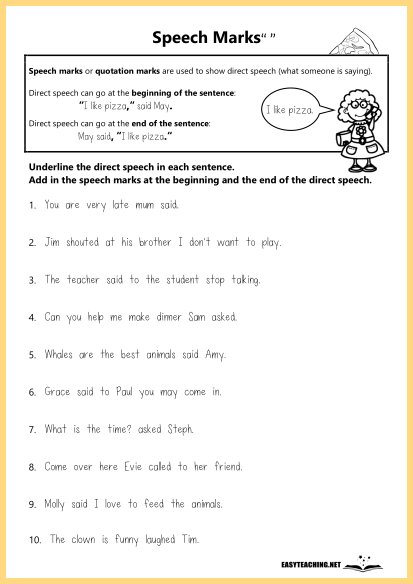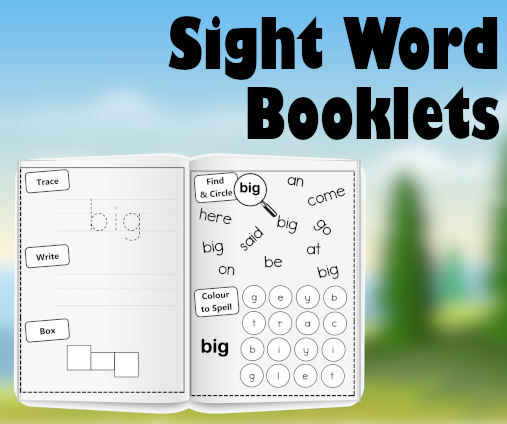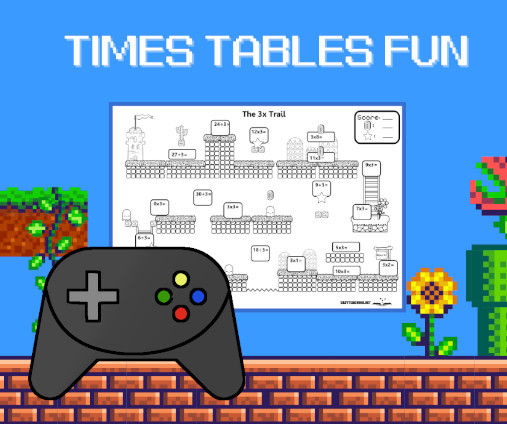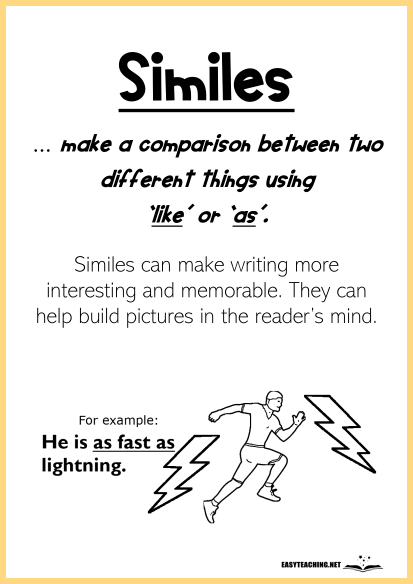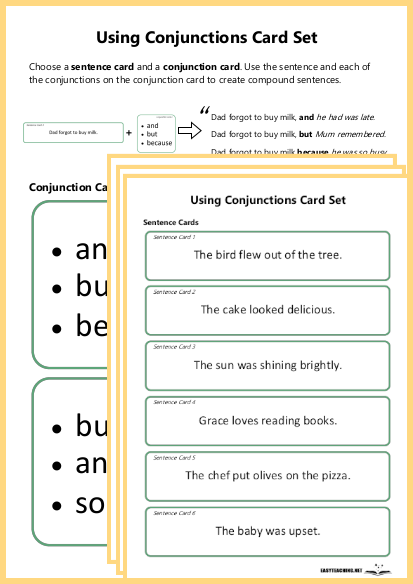TOPICS
English
Figurative language is the use of language to convey meaning which differs from the literal meaning of the words. This collection of figurative language worksheets includes the poetic devices of onomatopoeia, similes, metaphors, alliteration, personification and hyperbole. Visit our Poetry Writing page for more resources to teach poetry and figurative language.
Use the side menu to search for specific figurative language devices or use the filter above to narrow the results by resource type and/or grade level.
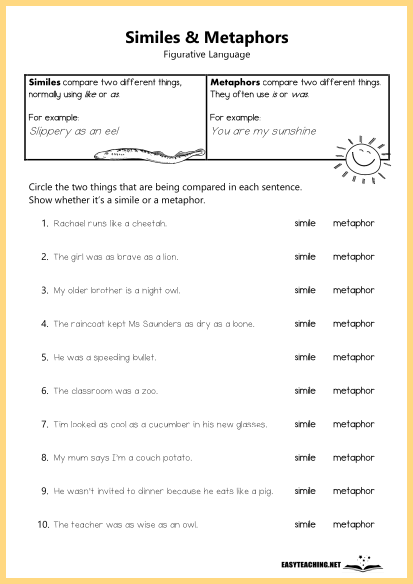



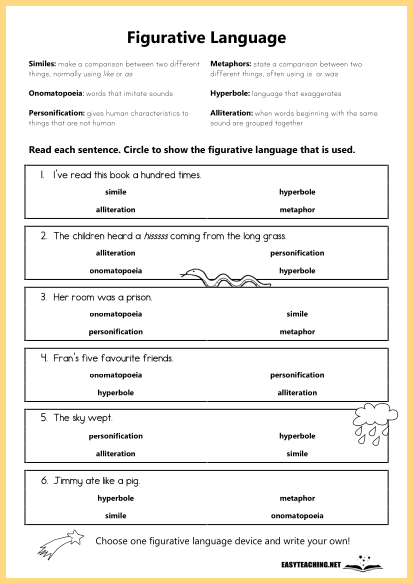
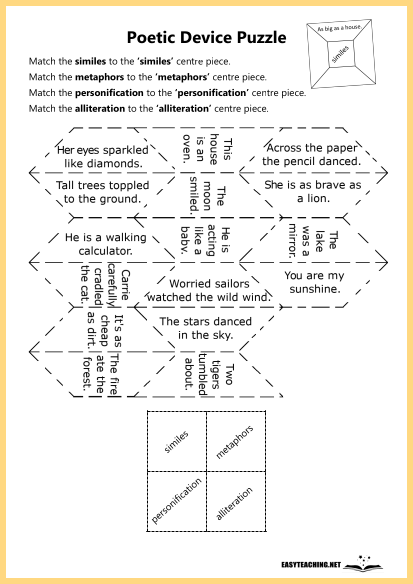

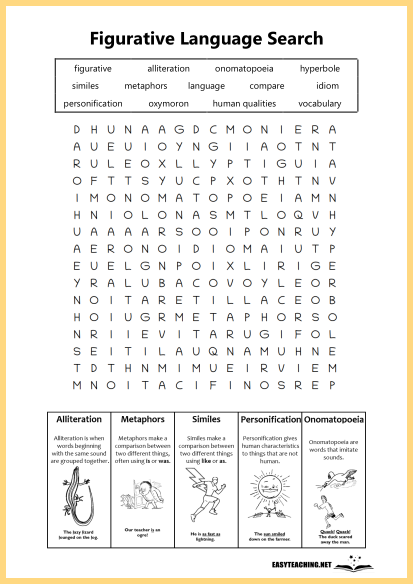

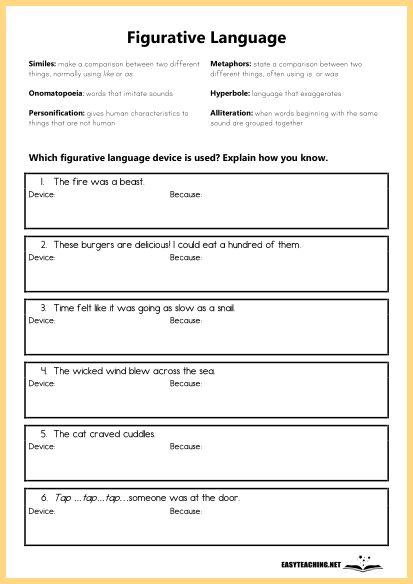

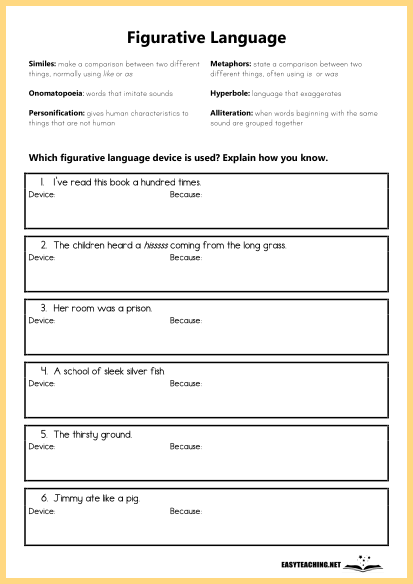







Related Material









